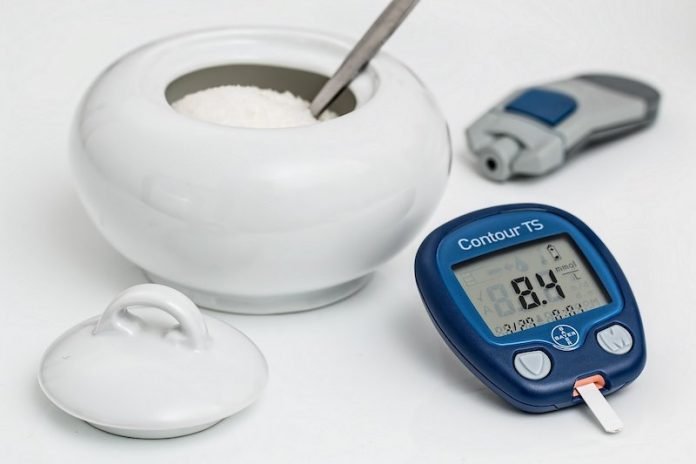
In a new study from Rensselaer Polytechnic Institute, researchers found people with type 2 diabetes who contract COVID-19 are nearly 50% more likely to wind up in intensive care if they have poorly managed their blood sugar levels over the long term than those with better long-term glycemic control.
They found that two- to three-year longitudinal glycemic levels better indicate the risk of COVID-19 severity than measurements that look at a shorter period of time.
Type 2 diabetes patients are unable to regulate the amount of sugar glucose in their bloodstream without medication and managing their diet.
Chronic high blood sugar levels, typically tracked as the percentage of hemoglobin A1c (HbA1c) found in the blood, can damage a variety of functions, including the circulatory, nervous, and immune systems.
In the study, the team looked at records for more than 16,000 people with type 2 diabetes and COVID-19 between 2017 and 2020.
They also calculated a lower risk for patients using the common diabetes-control medication metformin, or a combination of metformin and insulin, or corticosteroids.
The team says poor glycemic control creates a reaction that causes molecules known as advanced glycation end-products (AGEs) to accumulate, deteriorating the quality of bone over time.
AGEs are known to contribute to increased oxidant stress and inflammation, which are risk factors in COVID-19 and other respiratory illnesses.
The team reasoned that the same longitudinal glycemic control measurement they were testing as a predictor of bone fracture risk might be useful in predicting the severity of COVID-19.
They divided the records of type 2 diabetic patients in the study into two groups, those with “adequate” longitudinal glycemic control ranging from 6 to 9%, and those with “poor” glycemic control of 9% or above over two to three years.
The team found that those with poor glycemic control were 48% more likely to require treatment in an intensive care unit.
By another measure, a 1% increase in longitudinal HbA1c is directly associated with a 12% increase in the risk of landing in the ICU.
They also showed that diabetics who were taking metformin when they contract COVID-19 face a 12% lower risk of visiting the ICU, those on metformin and insulin have an 18% lower risk, and those prescribed corticosteroids have a 29% lower risk.
The team hopes these insights aid physicians in better treating and managing high-risk patients.
If you care about blood sugar, please read studies about this common eating habit may lead to high blood sugar, weight gain and findings of a way to reverse high blood sugar and muscle loss.
For more information about blood sugar health, please see recent studies about Americans’ blood sugar control is getting worse and results showing that common drug for blood sugar control may treat heart failure.
The study is published in BMJ Open Diabetes Research & Care. One author of the study is Deepak Vashishth.
Copyright © 2021 Knowridge Science Report. All rights reserved.



